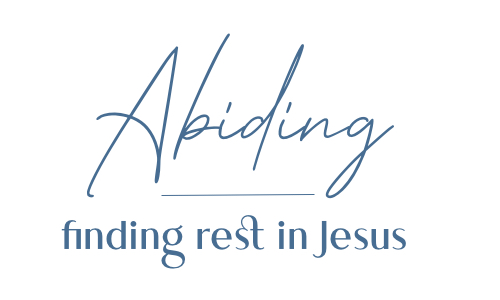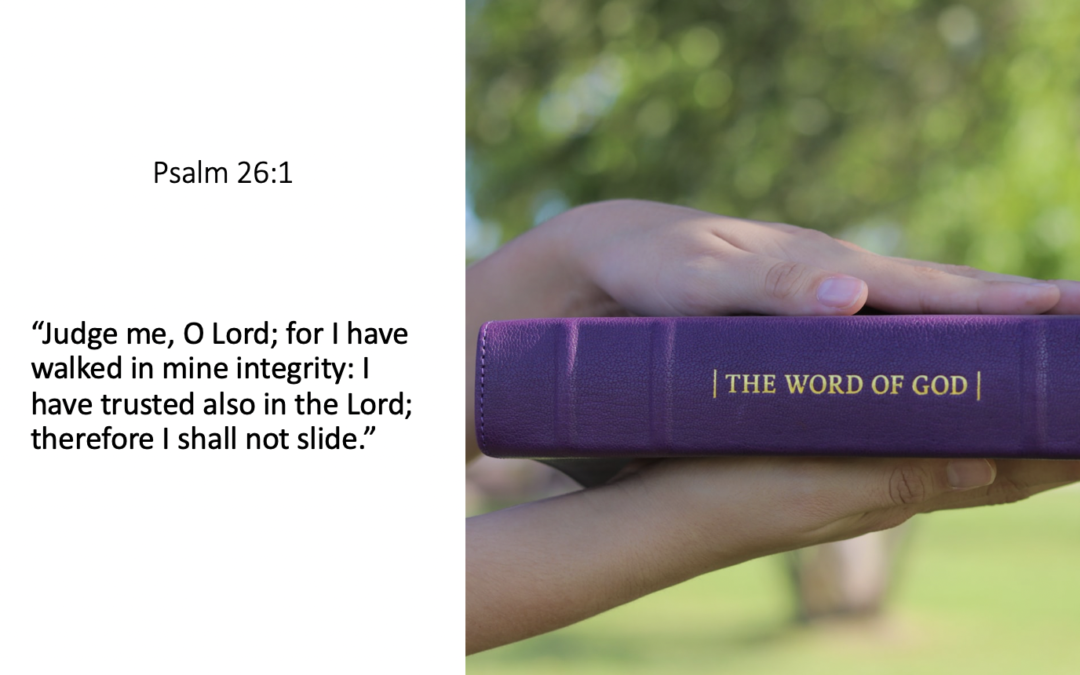Rebekah Hawk is sharing devotional thoughts with us again this week. You can learn more about her on the contributor’s page.
When I say, “I don’t care what people think of me; I only care what God thinks,” I find myself
making a statement of either extreme arrogance or extreme trust.
David’s request for vindication by the Lord, and his following reason for vindication–his claim
to have walked or lived in his integrity–appears as extreme arrogance. Integrity is defined
as “adherence to moral and ethical principles;soundness of moral character; honesty.”
David’s actions in his younger years certainly adhere to moral and ethical principles – namely, his
valiant defeat of Goliath and his loyalty to God’s anointed. However, his actions as King
David–lust, adultery, manipulation, murder, and inaction concerning his daughter Tamar–burn in
our minds, shocking us with his arrogance that assumes God would vindicate him.
Perhaps what is so shocking is that we believe that David wrote Psalm 26 in obedience to the
Holy Spirit Who inspired the authors of the Bible to write down only what God wanted to be
included in His Word. Therefore, we must conclude that David was not speaking in arrogance,
but in extreme trust, as he makes a dual claim: not only has he walked in his integrity, but he has
also trusted in the LORD.
I believe that the only way David’s prayer makes sense is if integrity involves recognizing our
sin and admitting to needing an “about-face,” asking for forgiveness wherever necessary, and
making a course correction under the direction of the Holy Spirit. Honesty, found in the
definition of integrity, includes being honest with ourselves.
So often, we are not honest with ourselves. We are so eager to prove our own integrity that
when someone raises a question about the holiness of our actions, we bristle in self-righteousness
instead of trusting in the Lord without wavering.
David did not go on to commit more adulterous affairs; in fact, when he was kindly but firmly
shown his sin by Nathan the prophet, he immediately confessed his own wickedness and cried
out for forgiveness in recognition of his grievous sins.
His integrity is defined by his response to being shown his sin, and he prays for God to vindicate him to
those who would (apparently, like me!) question his ability to make such a claim as “I have walked in
my integrity.” David trusted God to vindicate his salvation when faced with the darkness of his sin: he
believed wholeheartedly in God’s victory over sin.
We, too, may walk in our integrity when we realign ourselves to God’s moral and ethical
principles in honesty. When God shows us our sin, we trust our integrity to Him—we must move
forward from our glance in His holy mirror with repentance and obedience, not caring how
foolish we look to others.
We are concerned only with moving further up and further in with our Savior that we may know Him
and the power of His resurrection…. THAT is what we ought to mean when we say we do not care what
others think of us.


Recent Comments